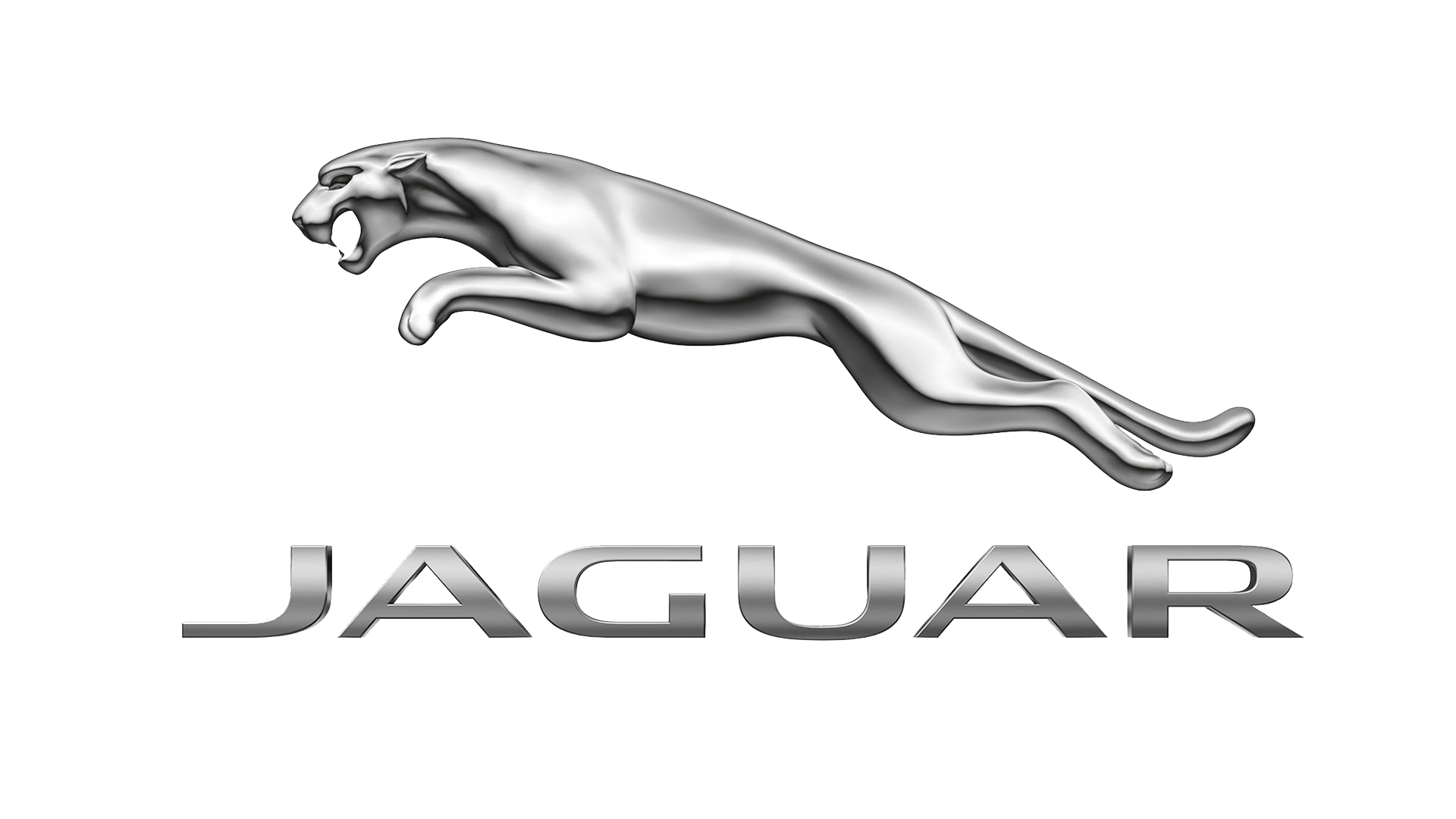Japanese second-hand cars are highly sought after worldwide due to their reliability, affordability, and exceptional quality. Known for their longevity and excellent engineering, these vehicles offer great value for money. Whether you're looking for a budget-friendly option or a high-performance car, Japanese second-hand cars provide a trusted solution.
SEE Also : Car importer rules japan to Newzeland
Overview of Japanese second hand cars market
The Japanese second-hand car market is renowned for its quality and reliability. Japan's strict vehicle inspection and maintenance regulations ensure that used cars are generally in excellent condition.
Buyers can choose from many cars, ranging from popular Japanese companies like Toyota, Subaru, Suzuki, Nissan, Honda, and other Brands. However, online platforms and specialized dealerships make accessing these vehicles easy for domestic and international buyers.
The market offers various price points, lots of options to buyers. Additionally, second-hand Japanese cars are popular worldwide because they have transparent maintenance histories and low mileage.
Benefits of Buying Japanese Second Hand Cars
- They are renowned for their exceptional reliability and durability, thanks to meticulous maintenance standards in Japan.
- These vehicles often outperform more recent versions from different countries in terms of safety features and cutting-edge technology.
- They depreciate at a slower rate, ensuring better value for your money.
- Japanese vehicles are known for their fuel efficiency, reducing long-term operating costs.
- The variety of models available allows buyers to find the perfect automobile.
- Japan's strict vehicle inspection standards mean that even older vehicles are in excellent condition, making them a smart and economical choice.
SEE also : Toyota or Honda
Reliability and Quality
Japanese second hand cars are highly reliable and of excellent quality. These vehicles undergo rigorous maintenance and inspections, which ensures they meet high standards before selling.
Japanese automakers are renowned for their craftsmanship and dedication to detail. This results in vehicles that age gracefully and require minimal repairs. The country's strict roadworthiness regulations contribute to the overall reliability of these cars.
The benefits of investing in a second-hand Japanese car include longevity, efficient performance, and low maintenance costs. Known for their excellence, these vehicles remain a preferred choice for those who seek dependable transportation.
Advanced technology and features
The top technologies in the Japanese automobile industry. Although automobiles are one of the most common items in everyday life, they are also the most complex, requiring sophisticated technology to manufacture. It is essential to the development of components for the manufacture of automotive vehicles.
Globally, one of the biggest industries is the Japanese automobile industry. Having overtaken Germany in the 1960s, Japan has been one of the world's top three automakers ever since.
Japanese second-hand cars offer advanced technology and features that keep them in high demand with buyers. These vehicles often have cutting-edge safety systems, including adaptive cruise control and lane-keeping assist, ensuring a secure driving experience.
Many Japanese cars also feature efficient hybrid or electric powertrains, reducing environmental impact and fuel costs. Additionally, infotainment systems in these vehicles boast intuitive interfaces and seamless connectivity, keeping drivers and passengers entertained and informed on the road. Furthermore, the reliability of Japanese engineering means that these cars often have a longer lifespan, providing excellent value for budget-conscious consumers.
- Cutting-edge Safety Systems: A cruise control that adapts to your driving style and lane-keeping assist.
- Eco-friendly Powertrains: Efficient hybrid or electric options for reduced environmental impact and lower fuel costs.
- User-Friendly Infotainment: Intuitive interfaces and seamless connectivity.
- Exceptional Reliability: Japanese engineering for a longer lifespan, providing excellent value for buyers.
Resale value
There is no doubt that Japanese cars have a substantial value at resale. Their durability makes them highly desirable used cars. Buyers appreciate the long-term value of Japanese vehicles, as they tend to hold their worth well over time.
This is attributed to their quality engineering, fuel efficiency, and low maintenance costs. Brands like Toyota, Honda, and Subaru consistently receive high marks for their resale value. Whether the customer buys or sells, a Japanese car is a wise investment, as it retains its market appeal and price. Moreover, the Japanese vehicle provides peace of mind for owners and a good return on investment for sellers.
When buying Japanese second-hand cars, there are several key factors to consider that can help you make an informed decision:
Budget and Affordable Prices
One of the primary advantages of purchasing a Japanese second hand car is affordability. It is well known that Japanese vehicles are reliable and durable, making them an excellent choice for budget-conscious buyers. However, it is imperative that a clear budget is established before diving into the buying process.
In this way, you can reduce your selections and stay within your budget. Additionally, consider the associated costs, such as taxes, registration, and maintenance, to ensure the overall affordability of your purchase.
Extensive Range of Options
Japanese automakers offer various vehicles, from compact cars to luxury SUVs. Japanese brands like Toyota, Honda, Nissan, and Subaru have earned a reputation for producing diverse, high-quality models. Whether looking for fuel efficiency, off-road capability, or spacious interiors, you will likely find a Japanese second-hand car that meets your requirements.
Used car vs Brand New Cars
Deciding between a pre-owned and a brand-new Japanese car depends on your budget and priorities. While brand-new vehicles offer the latest features and warranties, they come at a higher price point. On the other hand, pre owned Japanese cars often provide excellent value for money, as they have already undergone the steepest depreciation. You should consider your needs, your budget, and the importance of having a new car when making an informed decision.
How to Export Japanese Cars
Exporting Japanese cars is a lucrative business due to their global demand for quality and reliability. Follow these steps for a successful export process.
Research Market Demand
Identify countries where Japanese cars are in high demand. Popular destinations include Africa, Southeast Asia, and the Middle East.
Obtain Necessary Licenses
Secure the required export licenses and permits from Japanese authorities. Ensure compliance with the importing country's regulations.
Source Vehicles
Purchase cars from Japanese dealers, auctions, or manufacturers. Verify the condition and specifications to meet your target market's requirements.
Arrange Inspections
Some countries require pre-export inspections for emissions, safety, or quality standards. Hire certified agencies to handle this.
Handle Logistics
Partner with reliable shipping companies. Select the appropriate shipping method, such as container shipping or roll-on/roll-off (RoRo) services.
Prepare Documentation
Organize documents like the invoice, bill of lading, export certificate, and import permits. Accurate documentation is critical for smooth customs clearance.
Deliver Vehicles
Coordinate with local agents for customs clearance and delivery to customers.
Exporting Japanese cars requires attention to regulations, logistics, and market trends. Thorough preparation ensures success in this competitive industry.
21 Popular japanese second hand cars models : Next Drive
Popular Japanese models on the second hand car market continue to attract buyers with their reliability and value. One of the most popular vehicles is the Toyota Corolla, which is known for its durability and reliable performance. Honda's Civic and Accord also compete, offering performance and comfort.
The Nissan Altima and Sentra provide budget-friendly options without compromising on quality. However, the Subaru Outback and Forester's all wheel drive capability is a hit for adventure seekers.
Mazda3's stylish design and spirited driving experience make it sought after. In the realm of luxury, the Lexus ES and Toyota Camry continue to shine, offering affordable elegance. Japanese cars, known for their durability, hold their resale value exceptionally.
1.Toyota Corolla
As one of the most renowned compact sedans on the market, the Toyota Corolla has a reputation for dependability and practicality. Its a popular choice among car buyers with a fashionable exterior and spacious interior.
See Also : Rav4 vs toyota Corolla
Specifications:
- The Corolla has a choice of engines, including a fuel-efficient 1.8-liter four-cylinder and a more potent 2.0-liter four-cylinder.
- It offers impressive mileage, reaching up to 40 mpg on the highway in some models.
- Corolla has a touchscreen infotainment system with Android Auto.
- Lane departure warning, adaptive cruise control, and automated emergency braking.
Pros:
- Exceptional reliability: Longevity and low maintenance costs are hallmarks of the Corolla.
- Comfortable ride: Smooth suspension provides a comfortable ride.
- High resale value: Investing in a Corolla is a wise decision.
- Strong safety features: The Toyota Safety Sense suite provides peace of mind.
Cons:
- Modest acceleration: The Corolla may feel sluggish in comparison to some competitors.
- Limited cargo space: Its trunk is small for a compact sedan.
- Basic interior materials: Some rivals offer more upscale cabin materials.
2. Mazda MX-5
The Mazda MX-5, a legendary roadster, captivates drivers with its exhilarating performance and timeless design. Its lightweight chassis and balanced handling deliver an unparalleled driving experience. Powered by a responsive 2.0-liter four-cylinder engine, it churns out 181 horsepower, ensuring spirited acceleration on demand. With a six-speed manual transmission, enthusiasts revel in the joy of shifting through gears with precision.
Specification
- 2.0-liter inline-4 engine producing around 151 lb ft of torque and 181 horsepower.
- A 1.5-liter inline-4 engine with lower power output, around 132 horsepower.
- Usually equipped with a manual transmission with six speeds.
- Optionally available is a six-speed automatic transmission with paddle shifters.
- Renowned for its exceptional handling and agility, owing to its lightweight construction.
- Engine and transmission configuration determine acceleration time from 0-60 mph.
- Offers high fuel efficiency, with EPA-estimated mileage varying based on engine and transmission choice.
- Generally achieves around 26-30 mpg in city driving and 34-36 mpg on the highway.
- Some models may have a small rear seat suitable for occasional use.
- Features a manually operated or power-retractable soft-top roof.
- Retractable hardtops may be available for added security.
- Airbags and antilock brakes are among the most common safety features.
Pros
- MX-5's agile nature allows it to carve through corners effortlessly, providing thrills on every twisty road.
- Its retractable soft top lets drivers embrace the open-air experience, enhancing the connection with the driving environment.
- The interior design prioritizes the driver's needs, with intuitive controls and supportive seats for a comfortable ride.
- Mazda's reputation for durability ensures peace of mind for long-term ownership.
Cons
- The MX-5's compact size results in minimal storage capacity, making it less practical for hauling cargo.
- With the convertible top up, some drivers may find the cabin to be noisier compared to traditional coupes.
- Its sporty suspension setup prioritizes performance, which can translate to a firmer ride quality over uneven surfaces.
See Also : Toyota Highlander reviews
3. Suzuki Alto
There is no doubt that the Suzuki Alto is a popular automobile due to its affordability, fuel economy, and practicality.As a result of its small size and agile handling, the Alto is ideal for maneuvering through crowded city streets and parking spaces. The Suzuki Alto has the following key specifications, pros, and cons:
Specifications
- With a small engine displacement of 0.8 to 1.0 liters, the Suzuki Alto offers excellent fuel economy and sufficient power for city driving.
- With either a manual or automatic transmission, it offers drivers a choice of driving styles.
- Small size and well-suited proportions for driving in cities
- Standard equipment available.
Pros
- Competitively Price.
- Small engine size
- Extremely lightweight
- Impressive fuel economy,
- Reducing running costs.
- Compact dimensions and tight turning radius
- easy to navigate.
Cons
- Due to its small size, the Suzuki Alto may lack interior space and cargo capacity compared to larger vehicles. This limits its suitability for long trips or carrying large loads.
- While adequate for city driving, the Alto's small engine may struggle during highway merging or steep inclines, leading to a less dynamic driving experience.
- Entry-level trims of the Alto may lack some modern amenities and advanced safety features found in higher-priced competitors, potentially leaving buyers wanting more in terms of comfort and convenience.
4.Toyota AYGO
The Toyota AYGO is a fashionable and small city vehicle that gets exemplary mileage and has nimble handling. This vehicle appeals to young drivers looking for cost and urban usability because of its contemporary style and customisable options. However, its small size improves driving experience in cities by making parking easier. Aygo is also navigating confined places simple.
Specifications
- Fuel-efficient 1.0-liter three-cylinder engine.
- Adequate power with low fuel consumption for city driving.
- Automatic transmission options are available, but manual transmissions are common.
- Despite its compact dimensions, it still provides seating for four passengers and a good amount of cargo space.
Pros:
- For commuting and city driving.
- Cost Effective
- Easy with small size.
- With a relatively low starting price, the AYGO is accessible to a wide range of buyers.
- Various customization options with different colors and trim levels.
Cons:
- The small engine may feel underpowered, especially when driving at highway speeds or with a full load of passengers.
- While functional, the interior design and materials may feel cheap compared to some competitors.
- Compact dimensions mean rear-seat passengers may find legroom and headroom tight, especially on long journeys.
5.Toyota iQ
Toyota's iQ is a compact city car with impressive specifications despite its small size. Due to its length of just 2.985 meters, it is capable of accommodating four passengers comfortably. An engine with a displacement of 1.0 liters or 1.3 liters provides adequate power for driving in urban areas.
Specifications
- Designed for urban driving and parking, it has a compact 3 meter length.
- Excellent fuel economy with a 1.0-liter or 1.3-liter gasoline engine.
- Featuring a smooth and convenient automatic transmission.
- Designed for four passengers.
- Advanced safety features such as airbags, ABS, and stability control.
- Touchscreen infotainment system with Bluetooth connectivity and navigation.
- Premium materials, adjustable seats, and ample storage are included.
- Sleek and modern design with aerodynamic features for enhanced efficiency.
- Offered in various trim levels with optional personalization packages.
- Environmentally friendly materials and advanced emissions control technology.
Pros
- Surprisingly roomy for a car of its size, comfortably accommodating four adults.
- Offers excellent mileage, reducing fuel expenses for owners.
- Nimble handling makes it easy to dart through traffic and navigate urban obstacles.
- Sleek and modern aesthetics appeal to urban drivers.
Cons
- The trunk is small, which restricts the amount of luggage or groceries it can carry.
- It could seem underpowered on highways or steep inclines, even if it is sufficient for driving in cities.
- Suspension configuration puts agility ahead of comfort, which makes for a hard ride on uneven terrain.
- The iQ may cost more than some of its rivals on the market despite its small size.
- At higher speeds, engine noise becomes evident and might have an impact on cabin comfort while driving on a highway.
6.Mazda2
The Mazda2 is an ideal vehicle for driving in cities. With its fuel-efficient engine, the car achieves excellent mileage. Its nimble handling and quick steering enhance the driving experience. A relaxing trip is guaranteed by the car's tastefully decorated interior and high-quality materials.
Specifications
- Efficient Skyactiv-G 1.5-liter gasoline engine.
- Available with manual and automatic transmission options.
- Generates up to 90 horsepower for responsive performance.
- Achieves impressive fuel economy, ideal for urban driving.
- Sleek and aerodynamic exterior design with signature Mazda styling cues.
- Comfortable seating for five passengers with ample cargo space.
- Equipped with the Mazda Connect infotainment system and advanced safety features.
- Responsive handling and agile maneuverability for city driving.
- Multiple airbags, ABS, stability control, and optional advanced driver assistance systems.
Pros
- Nimble handling makes driving fun.
- Fuel-efficient engines save gas money.
- Stylish exterior design stands out in its class.
- Well-built interior with user-friendly features.
- Compact size makes parking and maneuvering easy.
Cons
- Some may find the ride quality too firm.
- Engine noise can be intrusive at higher speeds.
- Rear-seat legroom is tight for taller passengers.
- Lack of advanced safety features in the base models.
- Limited availability of optional hardware upgrades.
7.Nissan Micra
Nissan Micra is a compact car known for agility and fuel efficiency. As a result of its sleek design and modern features, it is ideal for urban driving. Comfort and versatility are provided by its spacious interior.
Specifications
- Available in petrol and diesel variants.
- Options include manual and automatic.
- Features touchscreen infotainment, smartphone connectivity, and advanced safety systems.
- Offers impressive mileage for both city and highway driving.
Pros
- Save money on fuel expenses with its economical engine options.
- Provides modern convenience and safety features for a comfortable drive.
- Responsive steering and agile performance make driving enjoyable.
- A sleek exterior and well-appointed interior create a pleasing aesthetic.
Cons
- The rear seat and cargo space may feel cramped for taller passengers or those with extensive luggage.
- Suspension can feel firm on rough roads, leading to an uncomfortable ride.
- Comparable models from competitors may offer similar features at a lower price point.
8.Nissan LEAF
A Nissan LEAF is an innovative electric vehicle (EV) designed for eco-conscious drivers who seek sustainable transportation options. As a result of its sleek design and advanced technology, the LEAF offers an impressive range and performance, making it an excellent choice for everyday use. Nissan LEAF represents a shift towards greener mobility solutions as a leader in the EV market.
Specifications
- The Nissan LEAF has an impressive electric range, typically 150-226 miles depending on the model year.
- Whether at home or on the go, it offers multiple charging options, including standard AC and fast DC charging.
- Providing smooth and responsive acceleration, the LEAF is great for city driving.
- Despite its compact exterior, the LEAF provides ample passenger and cargo space.
- Advanced technology features include smartphone integration, navigation, and driver assistance.
Pros
Cons:
- Long-distance trips require careful planning due to the LEAF's limited range despite improvements.
- As the LEAF's battery capacity degrades, its range and performance may suffer.
- The LEAF's range and performance may decrease in cold weather conditions, affecting its usability.
- In contrast with similar gasoline-powered vehicles, the LEAF has higher initial purchase price, but this is offset by incentives and savings over time.
9.Mazda6
Mazda6 boasts sleek design and impressive performance, making it a standout in its class. With its striking exterior and comfortable cabin, the Mazda6 provides an exhilarating and luxurious driving experience.
Specifications:
- A 2.5-liter inline-4 and a turbocharged 2.5-liter inline-4 power the Mazda6.
Pros:
- Stylish design sets it apart in its segment.
- Upscale interiors with user-friendly technology.
- Strong safety features enhance peace of mind.
Cons:
- Rear-seat space may feel tight for taller passengers.
10.Toyota Prius
The Toyota Prius is a pioneering hybrid car, renowned for its fuel efficiency and eco-friendly design. Since its debut in 1997, it has set the standard for hybrid vehicles worldwide. With its sleek design and advanced technology, the Prius continues to lead the way in sustainable transportation, shaping the future of the automotive industry.
Specifications:
- MPG ratings are impressive, boasting high fuel efficiency.
- Advanced safety technology and a touchscreen infotainment system are standard.
Pros
- Exceptional fuel economy, ideal for eco-conscious drivers.
- Comfortable ride quality with a spacious interior.
- Advanced safety features enhance peace of mind.
- Low emissions contribute to a greener environment.
- Versatile and practical for daily commuting or long trips.
Cons
- Acceleration may feel sluggish compared to gasoline-powered vehicles.
- Some may find the exterior design polarizing.
- Higher upfront cost than conventional gasoline cars.
- Limited all-electric range for plug-in hybrid models.
- Cargo space may be compromised due to battery placement.
11.Suzuki Swift
Suzuki Swifts are known for their agile handling and fuel efficiency. The vehicle has a sleek design and a comfortable interior, making it an enjoyable vehicle to drive. With its peppy engine, it provides ample power for commuting in the city.
Specifications
- Efficient 1.2L or turbocharged 1.0L option.
- Smooth 5-speed manual or CVT.
- Impressive mileage of up to 50 mpg.
- Spacious cabin with modern infotainment.
- Advanced safety features including collision mitigation.
Pros
- Agile performance, perfect for city driving.
- Saves money with excellent gas mileage.
- Proven track record of durability.
Cons
Lacks upscale finishes found in pricier models.
12.Lexus IS
There is a balance between luxury and performance in the Lexus IS. When advanced technology is seamlessly integrated into the driving experience, it becomes both convenient and enjoyable. Its refined interior exudes elegance and provides passengers with comfort and sophistication.. Powerful engine options deliver impressive performance without sacrificing efficiency.
Specifications
- The Lexus IS comes with two engines: a turbocharged 2.0-liter four-cylinder or a 3.5-liter V6.
- It offers a smooth-shifting eight-speed automatic transmission.
- The interior boasts high-quality materials and comfortable seating.
Pros
- Striking exterior design with sharp lines and aggressive styling.
- Smooth and refined ride quality, especially on long highway drives.
- Excellent build quality and luxurious interior materials.
- Good fuel efficiency, especially with a turbocharged four-cylinder engine.
- Comprehensive standard safety features.
Cons
- Limited rear-seat space compared to competitors.
- Infotainment systems can be finicky and distracting while driving.
- The handling isn't as sporty or engaging as some rivals.
- The optional V6 engine's fuel economy trails behind competitors.
13.Nissan Juke
Nissan Juke, a compact crossover, is distinctive and bold. Performance is impressive thanks to the turbocharged engine. There is a high level of comfort and versatility inside the cabin. Connectivity and entertainment are provided by advanced technology features. Due to its compact size, parking in tight spaces is a breeze. The Juke's fuel efficiency ensures a cost-effective driving experience. As a whole, it is a fun and practical option for urban explorers.
Specifications:
- Compact SUV with a unique, eye-catching design.
- Offers a choice between a turbocharged 1.6-liter engine or an electric powertrain.
- Equipped with a spacious interior and configurable cargo space.
Pros
- Distinctive styling sets it apart.
- Agile handling makes driving fun in urban environments.
- Modern technology and safety features.
- Versatile interior layout provides ample utility.
- Efficient engine options offer superior fuel economy.
Cons
- Limited rear-seat space compared to rivals.
- Controversial styling may not appeal to everyone.
14.Nissan Qashqai
The Nissan Qashqai features sleek styling and advanced technology.. Incorporating cutting-edge safety features, it ensures peace of mind on every trip.. In the compact SUV segment, the Qashqai stands out for its bold design and versatility. With the Nissan Qashqai, you can experience the thrill of driving.
Specifications
- Engine options include petrol and diesel variants.
- Available with a manual or automatic transmission.
- Front-wheel-drive or all-wheel-drive options.
- Spacious interior with ample cargo capacity.
- Infotainment system with touchscreen interface
Pros
- Sleek and modern design.
- Comfortable ride quality.
- Fuel-efficient engines.
- Versatile and practical for daily use.
- Featuring advanced technology features.
- As far as its segment goes, it offers good value for money.
Cons:
- Some may find the handling less engaging than rivals.
- Interior materials could be better.
- Limited off-road capabilities for an SUV.
15. Honda Civic
A beacon of automotive excellence, the Honda Civic is renowned for its reliability and fuel efficiency. With its aerodynamic curves and bold lines, its sleek design captures the attention of onlookers. An interior that seamlessly blends modern comforts with intuitive technology offers a driving experience that is both comfortable and connected. Whether navigating city streets or cruising the open highway, the Civic's responsive handling and efficient engine provide a thrilling driving experience. For drivers seeking practicality without sacrificing style, the Honda Civic has earned a reputation built on decades of innovation and quality craftsmanship.
Specifications
- 1.5L turbocharged inline-4 or 2.0L naturally aspirated inline-4.
Pros:
- - Sleek exterior design.
- - Comfortable and spacious interior.
- - Agile handling and responsive steering.
- - Excellent fuel economy.
Cons:
- - Sluggish infotainment system.
- - Some may find the ride quality firm.
- - Limited rear visibility in certain models.
16.Nissan Note
A compact hatchback, the Nissan Note offers a spacious interior. It provides a comfortable and enjoyable driving experience thanks to its efficient fuel economy and agile handling. In terms of daily commuter vehicles, the Nissan Note is a versatile and reliable option.
Specifications:
- Compact hatchback with a 1.2-liter petrol engine.
- Offers a spacious interior with ample headroom and legroom.
- Comes with a touchscreen infotainment system and smartphone connectivity.
- Efficient fuel economy for city driving.
Pros:
- Excellent maneuverability in urban environments.
- Comfortable ride quality for daily commuting.
- User-friendly technology interface.
Cons:
- Limited engine power for highway overtaking.
- Interior materials feel somewhat cheap.
- Rear visibility may be obstructed.
17.Honda Jazz
This vehicle is known for its versatility, as well as its spaciousness and practicality. Due to its compact size, parking and maneuvering are effortless.. On the road, the Jazz's sleek exterior design is sure to turn heads. Every journey is made safer by its advanced safety features. You can enjoy a smooth and enjoyable ride in the Honda Jazz, whether you are running errands or taking a road trip.
Specifications:
- Engine: Efficient 1.5L i-VTEC petrol engine.
- Transmission: Available in manual and automatic options.
- Interior: Spacious cabin with versatile Magic Seats.
- Safety: Equipped with Honda Sensing suite including collision mitigation braking system.
Pros
- Excellent fuel efficiency.
- Versatile and practical interior layout.
- Smooth and comfortable ride.
- Comprehensive safety features.
- Reliable and durable construction.
Cons:
- Limited engine options.
- Some competitors offer more advanced technological features.
- Rear visibility may be hindered.
- Higher trim levels can be pricey.
- Interior materials feel basic.
18.Honda CR-V
Honda's CR-V is a versatile SUV that offers a great deal of space and comfort to families.. In addition to its sleek design and intuitive technology, the CR-V excels in both style and functionality, making it one of the most popular vehicles in its class.
Specifications
- Engine options include a 1.5-liter turbocharged inline-4 or a hybrid powertrain.
- Available in front-wheel or all-wheel drive configurations.
- Spacious interior with ample cargo room.
- Equipped with the Honda Sensing safety suite as standard.
Pros
- Comfortable ride quality and composed handling.
- Versatile and practical interior layout.
- Reliability and resale value.
Cons
- A turbocharged engine can feel underpowered at times.
- Limited towing capacity compared to rivals.
- Some rivals offer more upscale interior materials.
- The infotainment system could be more responsive.
- Higher starting price than competitors.
19.Toyota RAV4
The Toyota RAV4 is a compact SUV that is known for its reliability and fuel efficiency. As a result of its spacious interiors and advanced safety features, it provides a comfortable ride for both families and adventurers. This vehicle is a popular choice in its segment due to its combination of eco-friendliness and performance.
Specifications
- Toyota RAV4 offers a 2.5-liter four-cylinder engine.
- Available in front-wheel or all-wheel drive configurations.
- Offers a spacious interior with comfortable seating for five.
- Equipped with advanced safety features like Toyota SafetySense 2.0.
- Provides generous cargo space with versatile storage options.
Pros
- Excellent fuel efficiency for its class.
- Strong reliability and resale value.
- Smooth and comfortable ride quality.
- User-friendly infotainment system.
- Versatile cargo space for various needs.
Cons:
- Some rivals offer more powerful engine options.
- Interior materials could be better.
- Limited smartphone integration options.
- The base model lacks advanced technology features.
- Can be pricey compared to competitors.
- All-wheel drive impacts fuel economy.
20.Toyota Yaris
The Toyota Yaris is a compact car known for its reliability and fuel efficiency. As a result of its sleek design and advanced technology, it provides a comfortable ride for city commuters. In terms of handling and interior space, it is one of the best choices in its class. With the Yaris, you will receive value and practicality without sacrificing either.
Specifications
- Engine options include a fuel-efficient 1.5-liter four-cylinder.
- Compact size ideal for urban driving.
- Standard Toyota Safety Sense suite.
- Ample cargo space with versatile folding rear seats.
Pros
- Excellent fuel economy, perfect for daily commuting.
- Responsive handling and maneuverability.
- User-friendly infotainment system.
- Comfortable and spacious cabin for its size.
Cons
- Basic interior materials may feel cheap to some.
- Limited customization options compared to other models.
21.Mitsubishi Outlander
With modern technology, such as smartphone integration and a touchscreen infotainment system, the vehicle keeps occupants entertained and connected. A reliable performance can be expected from the Outlander whether it is tackling city streets or venturing off-road.. The Mitsubishi Outlander offers comfort, reliability, and style.
Specifications
- Engine: 2.5L inline-four.
- Transmission: Continuously Variable Transmission (CVT).
- Seating Capacity: Seven passengers.
- All-Wheel Drive (AWD) system available.
- Fuel Efficiency: Average.
- Infotainment: Touchscreen display with smartphone integration.
- Safety Features: Forward Collision Mitigation, Lane Departure Warning.
Pros:
- Spacious interior with third-row seating.
- Smooth ride quality.
- Available AWD for enhanced traction.
- Generous cargo space.
Cons:
- Some competitors offer more powerful engine options.
- Interior materials quality could be improved.
- Third-row seating may be cramped for adults.
- Limited towing capacity.





























